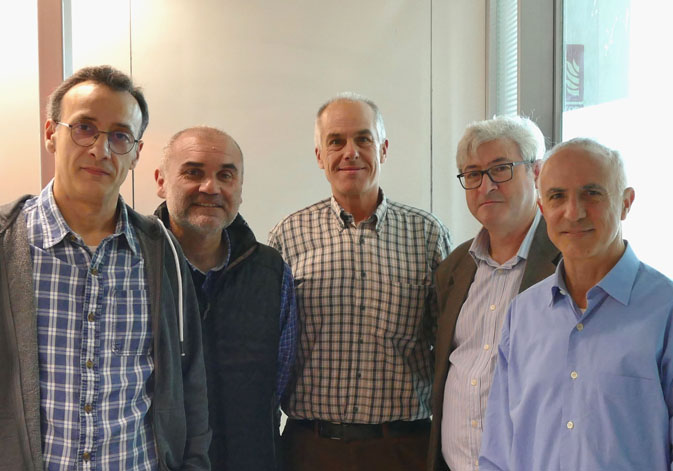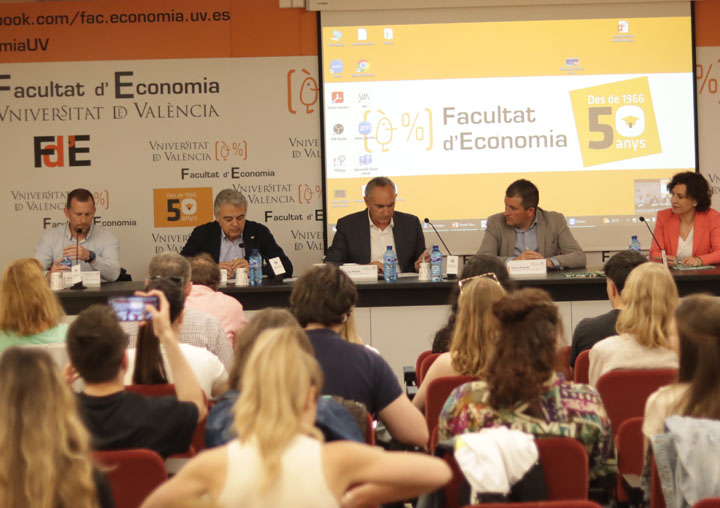The University of Valencia organises its first University Extension course on Quantum Computing
- Scientific Culture and Innovation Unit
- February 13rd, 2019

The University of Valencia teaches during this week and until Friday its first university extension course in Quantum Computing, a new technological paradigm that combines Computing and Mathematical Algorithmics with that of Quantum Physics, and where natural phenomena occur differently to human intuition. This new teaching experience, aimed at engineering and physics students, aims to train in the programming of IBM quantum computers.
In the academic proposal the foundations of algebra and quantum mechanics necessary to program these computers are explained, and laboratory practices are carried out with the platform open to the public IBM Q experience. The course, of 20 theory and practice hours, is taught by professors from the School of Engineering (ETSE-UV) and the Faculty of Physics of the University of Valencia, as well as by ABDProf SL staff, one of the first companies in Spain working in the development of a Quantum Computation simulator. The course maintains the trajectory started in 2017 by the ETSE-UV on teaching in this area of knowledge.
Combining Computation and Mathematical Algorithmics with Quantum Physics is what the scientific and technological community believes they can take advantage of to bring the computing capacity and knowledge to a point that has not yet been reached.
Francisco Gálvez, professor of the course who has worked for 18 years at IBM and is now part of ABDProf as director of research in quantum computing, explains that “it is logical to think that soon other companies in the sector such as Google, Rigetti, Intel or Microsoft will put their quantum computers on the market, and we will have to program them from a perspective that differs a lot from what we have right now in relation to traditional computing”. According to the expert, this fact explains the great response to this course among the university community, since all available places were filled several months in advance.
File in: Estudis , Grau , Facultat de Física , Escola Tècnica Superior d'Enginyeria , Facultats i Escoles , Formació complementària , Burjassot-Paterna















